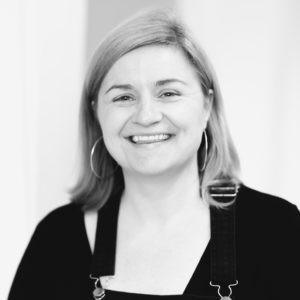Development of Access and Participation Professionals (DAPP)

The Development of Access and Participation Professionals (DAPP) encompasses a Professional Standards Framework and a Professional Accreditation Scheme for individuals with experience in supporting, delivering, managing or evaluating Widening Participation or Widening Access.
The Widening Access and Participation Accreditation Scheme:
The Accreditation Scheme has been designed to provide individuals working in a widening access or widening participation role in higher education with a route to professional accreditation.
The Scheme currently offers two levels of accreditation:
- Affiliate Level
- Practitioner Level
The objectives of the Accreditation Scheme include raising the profile of Widening Access and Participation, supporting professional development, encouraging practice sharing and celebrating success.
The Accreditation Scheme is delivered in partnership by SCAPP and the University of Nottingham.
The Accreditation Scheme Portfolio:
The Accreditation scheme is designed to work alongside professional learning and development processes, enabling participants, with support from a line manager or sponsor, to gain professional accreditation in WA and WP through the submission of an evidence-based portfolio.
This portfolio will illustrate how you meet the relevant professional standards statements for each theme of the WA and WP Professional Standards Framework, and is assessed by Peer Reviewers. Details of the Framework can be read below.
The Accreditation Scheme is made possible through the in-kind support and expertise of our Peer Reviewers that are fellow practitioners from across the sector.
Read More
Read more details about the DAPP scheme for potential participants and their supporting managers.
Find out moreLearn More
From Alice Smith (LEAPS) about the development of the DAPP, the Accreditation Levels, and support offered during the scheme.
Watch the video hereHear More
From Dr Tara Webster-Deakin (University of Nottingham) about how professionals can benefit from taking part in the DAPP Accreditation Scheme.
Watch the Video HereContact us
We welcome questions about DAPP, or expressions of interest from those who would like to be a Participant, or a Peer Reviewer of the Accreditation Scheme.
Enquiries from Scottish Institutions and Organisations: scapp@stir.ac.uk
Enquiries from English Institutions and Organisations: wa-wp-accreditation-scheme@nottingham.ac.uk

Previous Participant:
Morag Robertson – Transitions Administrator – Royal Conservatoire of Scotland
”By taking part in the accreditation scheme it provided me with the opportunity to pause, reflect on my practice, consider the work I do and think about areas of development and growth for my role in Fair Access. It also provided me with the chance to connect and learn from other widening participation colleagues from other institutions. I’m grateful for the opportunity and would encourage anyone who works in a widening access context to consider taking in the accreditation scheme.”
Peer Reviewer:
Amanda Baldwin – Head of Access, Equality and Inclusion – University of Strathclyde
”When the pilot Accreditation Scheme was launched in autumn 2021, I was keen to apply to be a Peer Reviewer. I firmly believe in the value of creating space for Widening Access practitioners to reflect on their own practice and to develop their knowledge and understanding of context, both within their own organisations and in a wider context.
I was fortunate in that during that first cycle, two of my own team were keen to apply for Affiliate Level, which gave me great insight into the process from the applicant perspective and also the support that was required from managers. The actual review process was really interesting and rewarding; there are clear structures in place for assessing each submission, however I improved my own understanding through working with a co-reviewer each time, which sparked very useful discussion and debate. I would recommend involvement to detail oriented colleagues who are excited by this opportunity to support the professionalisation of Widening Access.”
The Widening Access and Participation Professional Standards Framework
The Widening Access and Participation Professional Standards Framework sits at the centre of DAPP. It has been developed to provide a comprehensive set of professional standards against which participants can self-evaluate their widening access/participation work and produce evidence to demonstrate a personal commitment to professionalism in WA and WP.
The Professional Standards Framework has been developed in Scotland with the support of the Scottish Funding Council, but is relevant to the professional development of WA and WP practice across the UK and Internationally.
Framework Themes
The Professional Standards Framework sets out professional practice in WA and WP under three inter-related themes:
• What we VALUE
• What we DO
• What we KNOW and UNDERSTAND
Each theme contains a number of statements setting out the breadth of professional practice expected from those working in a WA and WP role. It can be applied to a diverse range of WA and WP professional roles and environments both in Higher Education and related organisations. These statements have been developed by peers and widening participation paractitioners.
Previous Participants
In 2022 the following participants were successful in achieving accreditation in the Pilot of the Widening Access and Participation Professional Standards Framework and Accreditation Scheme, at the following levels:
Amy McDermott – Practitioner
Ann Playford – Practitioner
Daniella Gash – Affiliate
Jackie Smith – Practitioner
Lidia Dancu – Practitioner
Lorna Lamont – Affiliate
Morag Robertson – Affiliate
Nicola Kennedy – Practitioner
Paula Christie – Practitioner
With thanks to the Peer Reviewers: Amanda Baldwin, Alice Smith, Andrew Comrie, Gill Ryan and Peter Tormey. And thank you to the Support Managers, for supporting these professionals to work towards their Accreditation.
The 2021 – 2022 pilot programme underwent an external evaluation, which has guided further development and delivery of the DAPP.